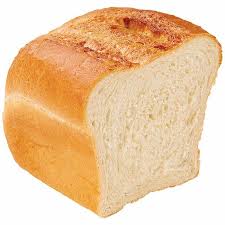Essay on “Half a Loaf is Better Than No Bread”
The proverb “half a loaf is better than no bread” carries profound meaning, suggesting that having something is preferable to having nothing at all. This age-old saying resonates across cultures and contexts, emphasizing the value of partial success and the importance of gratitude. In this essay, we will explore the origins and interpretations of this proverb, its application in various aspects of life, and why it remains relevant in today’s fast-paced world.
Read Also: Essay on Nigerianization of Nigeria
Historical Context (Half a Loaf is Better Than No Bread)
The phrase “half a loaf is better than no bread” dates back to medieval times and has its roots in English literature. It reflects the struggles of the common people who often faced scarcity and hardship. Bread, a staple food, symbolizes sustenance and survival. During those times, the idea of having even a small portion of food was significant, highlighting the importance of appreciating what one has rather than lamenting what one lacks.
Interpretations of the Proverb
1. Acceptance of Imperfection
In life, we often encounter situations where outcomes are not as favorable as we wish. The proverb encourages acceptance of imperfection. Instead of striving for an ideal that may be unattainable, it’s wiser to acknowledge and appreciate the smaller victories. For instance, in personal relationships, a modest but fulfilling connection is better than a longing for an idealized partner who may never appear.
2. The Importance of Gratitude
Gratitude plays a crucial role in our mental well-being. Recognizing that “half a loaf” signifies contentment with what we possess can lead to a more positive outlook on life. Studies show that practicing gratitude can improve mental health, increase resilience, and foster a greater sense of happiness. By focusing on what we have, rather than what we lack, we cultivate a mindset of abundance rather than scarcity.
3. Practical Applications
The proverb can be applied in various domains, including:
- Career: In a professional context, receiving a job offer that may not meet all your criteria is still a step forward. It provides experience, income, and potential for growth. Accepting such offers can lead to better opportunities down the line.
- Education: Students often face challenges in their academic pursuits. Achieving a passing grade, even if it’s not an A, is still a success that opens doors for further learning and improvement.
- Health: In terms of health and wellness, adopting some healthy habits, even if not all, is better than neglecting health altogether. Small changes can lead to significant outcomes over time.
Overcoming Challenges
While the proverb promotes acceptance, it does not imply complacency. It’s essential to strive for improvement while recognizing and valuing the progress made. Here are some strategies to overcome challenges while embracing the philosophy of “half a loaf”:
- Set Realistic Goals: Establish achievable objectives that allow for incremental progress. Celebrate each step rather than fixating on the end result.
- Embrace Flexibility: Life is unpredictable, and circumstances change. Being adaptable will help you navigate challenges more effectively.
- Seek Support: Surround yourself with a supportive community that encourages a mindset of gratitude and progress. Sharing experiences can provide motivation to continue striving.
Cultural Relevance
The proverb transcends cultural boundaries. Variations exist in many languages, reflecting a universal truth. For example, in Spanish, “más vale algo que nada” translates to “something is better than nothing.” This commonality underscores the shared human experience of facing scarcity and the inherent desire for fulfilment.
Modern Perspectives
In today’s consumer-driven society, the desire for perfection can be overwhelming. Social media often amplifies feelings of inadequacy, leading individuals to chase unattainable standards. The wisdom of “half a loaf is better than no bread” serves as a reminder to appreciate the small wins and foster a spirit of contentment.
1. Minimalism and Simplicity
The minimalist movement aligns with this proverb’s message. Advocates emphasize the importance of valuing experiences and relationships over material possessions. By focusing on what truly matters, individuals can cultivate a sense of satisfaction and happiness.
2. Mental Health Awareness
Mental health awareness campaigns encourage individuals to seek help and acknowledge that progress can be gradual. Understanding that partial recovery or small coping strategies are significant steps can foster resilience and hope.
How Do You Use “Half a Loaf is Better Than No Bread” in a Sentence?
You can use the proverb “half a loaf is better than no bread” in a sentence to express the idea of valuing what you have, even if it seems inadequate. For example:
“After months of job hunting, I finally secured a part-time position; while it’s not my dream job, I remind myself that half a loaf is better than no bread.”
How Can I Write a Story to Illustrate the Saying “Half a Loaf is Better Than None”?
To illustrate the saying “half a loaf is better than none,” consider writing a story about a character named Sarah who aspired to become a renowned artist. After graduating from art school, she struggled to find a gallery willing to exhibit her work. Finally, she received an offer from a small local café to display her paintings. Though the café wasn’t the prestigious venue she dreamed of, Sarah decided to take the opportunity.
As her artwork gained visibility, she met many art enthusiasts and eventually attracted the attention of a local gallery owner. This led to a solo exhibition, realizing her dream. Through her journey, Sarah learned that accepting the café opportunity was her stepping stone, proving that sometimes, a “half loaf” can lead to greater things.
What is the History of “Half a Loaf is Better Than No Bread”?
The phrase “half a loaf is better than no bread” has its origins in medieval English literature, where bread was a staple food symbolizing sustenance and survival. The saying reflects the struggles of common people who often faced scarcity. In times of hardship, having even a small portion of food was significant. Over time, this proverb has transcended its literal meaning, evolving into a broader metaphor for appreciating partial success and finding contentment in what one possesses. Variations of the phrase exist in many cultures, emphasizing its universal relevance.
How Do You Use “Better Half” in a Simple Sentence?
You can use “better half” to refer affectionately to a spouse or partner. For example:
“My better half surprised me with a lovely dinner for our anniversary.”
Conclusion
“Half a loaf is better than no bread” is a timeless adage that encourages appreciation for what we have and acceptance of life’s imperfections. It reminds us to celebrate small victories, embrace gratitude, and strive for progress rather than perfection. In a world that often prioritises abundance and achievement, this proverb urges us to find contentment in the little things, fostering a more fulfilling and balanced life.


